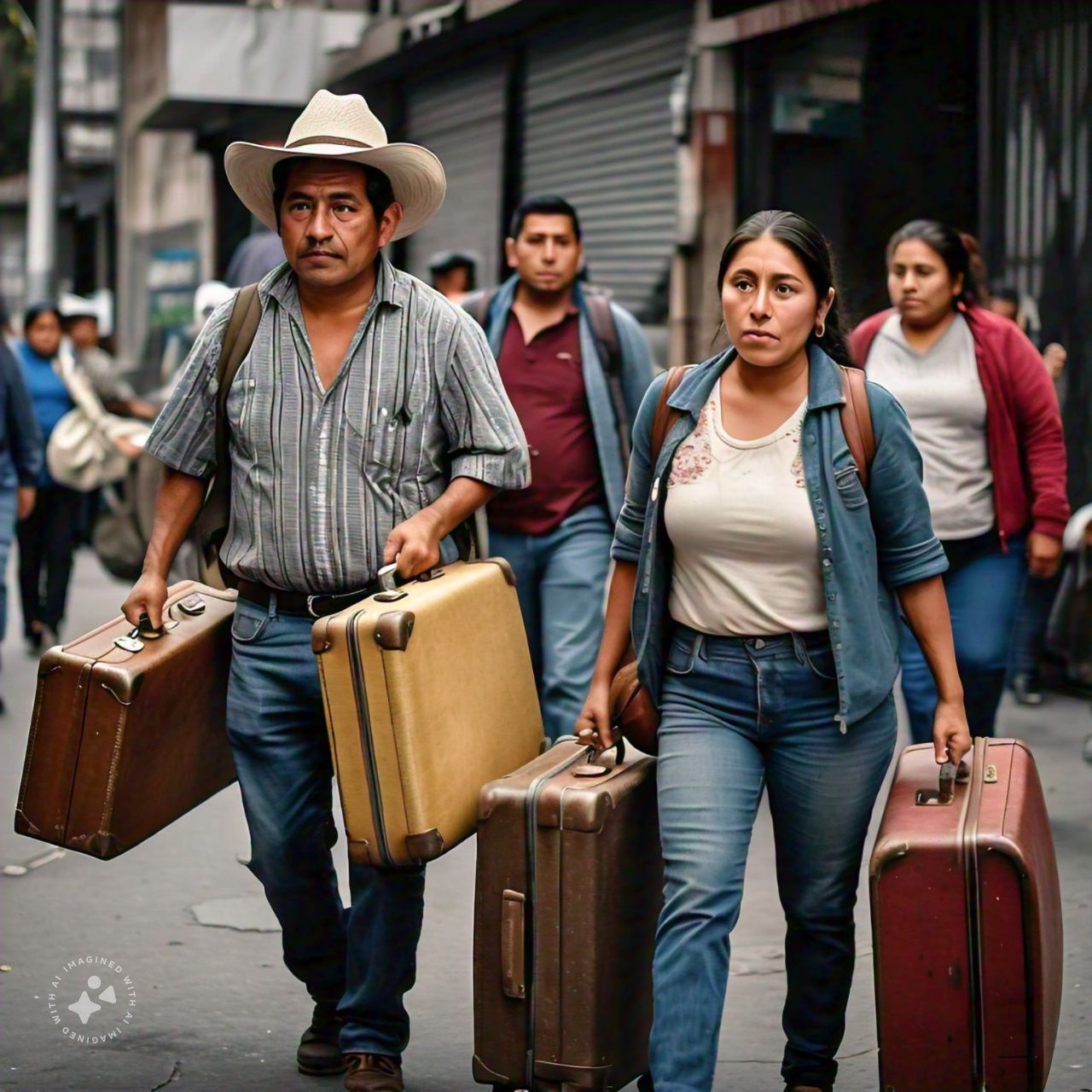
Updated Immigrant Story
By: Patricia Guadalupe - a senior professional and Professor of Journalism
“It is disappointing to me that Springfield has become the epicenter of vitriol over America’s immigration policy, because it has long been a community of great diversity… I'm the Governor of Ohio. I Don't Recognize the Springfield That Trump and Vance Describe.” So wrote Republican Mike DeWine in a New York Times editorial on Friday condemning the baseless claims and vitriol aimed at the Haitian immigrant community in the central Ohio town of Springfield. By now everyone has heard of Trump’s jaw-dropping statement “immigrants are eating cats and dogs in Springfield, Ohio” that he and veep nominee JD Vance continue to assert as true even while DeWine and other Republican leaders in the state – including Springfield Mayor Rob Rue – say are ridiculous and false about a community of people living there legally under the Temporary Protected Status program and who are working and paying taxes. But the Trump campaign has latched onto as a tried-and-true tactic of blaming immigrants for the ills of the country and it’s nothing new.
Throughout history, immigrants have been the target of all kinds of attacks, and the 2024 campaign has seen the same type of tactic with Republicans saying that if only the Biden administration had taken “control” of the border with Mexico, “we wouldn’t be in this situation.” But it was the Republican-led Congress that killed an immigration legislation which would have dramatically increased funding for security at the southern border to the point that it was criticized by immigrant groups and some Democrats as too focused on security and not on helping those with a legitimate reason to want to be in the United States, including the millions of undocumented immigrants already in the country.

But even while that legislation went nowhere, immigration is still a big issue in a White House that doesn’t go as far as making stories up about a group of immigrants but is still criticized if you’re paying attention.
On a Friday last month while everyone was focused on the Democratic search for a vice presidential candidate or on the Olympics or both, the Biden administration quietly paused a humanitarian entry program that lets citizens from four countries – three from Latin America – enter the United States on humanitarian grounds. It’s no coincidence that the Biden White House picked a Friday afternoon to announce this change – they were likely banking on most people not really paying attention to what is another controversial move.
The White House says it was doing the temporary hold while it reviews the screening process on the applications from those countries – Cuba, Haiti. Nicaragua, and Venezuela – which has been part of an effort to increase legal entry into the United States but which has been criticized by anti-immigrant groups and Republicans as way too permissive and easy for “anyone” to get in whether they had a legitimate claim of asylum or not. Under this particular program, up to 30,000 could enter the U.S. if they have sponsors who are legally in the U.S. and have the financial means to support the person.
The Homeland Security agency says it really needed to do a more in-depth look at sponsor applications, although they have provided no evidence that there is any kind of widespread fraud or false information on the applications, even while some conservative groups assert they have evidence to the contrary – again, not presenting anything at this time. DHS officials say they’re just looking at some applications that needed further review but that doesn’t necessarily mean there’s any evidence of fraud and could bring the program back within the next few weeks. DHS says that as of last month more than 495,000 people from those four nations have entered the U.S. since the program began for Venezuela in 2022 and in last year for the other countries.
Ironically, this is happening at the same time that the White House asserts that there were clearly some issues with the recent presidential election in Venezuela that gave incumbent Nicolás Maduro under a cloud of rampant fraud.
"I want to note that our patience and that of the international community is running out. It's running out on waiting for the Venezuelan electoral authorities to come clean and release the full detailed data on this election so that everyone can see the results," National Security Council spokesperson John Kirby said at a news conference from the White House. That the Venezuelan government declared a “resounding victory” for Maduro is worrisome, added Kirby and sent thousands of Venezuelans to the streets in massive protests and opposition leaders declaring victory and at the same time going into hiding.
“Now here’s the thing, how can that be happening, and the White House pauses the program on humanitarian entry for Venezuelans when clearly it’s a dangerous situation (in Venezuela),” says a supporter of the program. Human rights activists calculate that Venezuela has lost at least 25 percent of its population in that last few years as many have fled the country.
The Department of Homeland Security recently announced that it is resuming the program, asserting in a statement that they have updated procedures, including requiring fingerprints of U.S. sponsors and doing extra reviews to rule out “serial filing trends,” meaning watching for sponsors who could be fraudulently filing for multiple people. Again, Homeland Security really never had much evidence of fraud, but nonetheless, “With these updated procedures in place, DHS is resuming the issuance of new Advance Travel Authorizations and will closely monitor how this new process is operating moving forward," DHS said in a statement.
Quite a few Venezuelans have ended up at the U.S.-Mexico border with asylum seekers from Mexico itself and other countries, and here is where another issue comes up, says Yesenia Contreras, who works at a Washington law firm specializing in immigration law.
“There’s all this attention to a so-called ‘surge’ of undocumented immigrants at the border, like it some kind of invasion of people coming across the country illegally but the truth is the vast majority are seeking asylum and they’re waiting for their cases to be heard, but the problem is that there aren’t enough judges to hear their cases so they wait and wait,” she tells Al Día. “And no one talks about this. These people are going through the process legally and it’s not their fault that they have to wait until a judge becomes available.”
The National Association of Immigration Judges says that the average caseload is a eye-popping 5,000 cases per judge. Even doubling the current number of judges, the association estimates, could resolve what the NAIJ says is a “staggering” backlog of cases in less than ten years.










DEJE UN COMENTARIO: